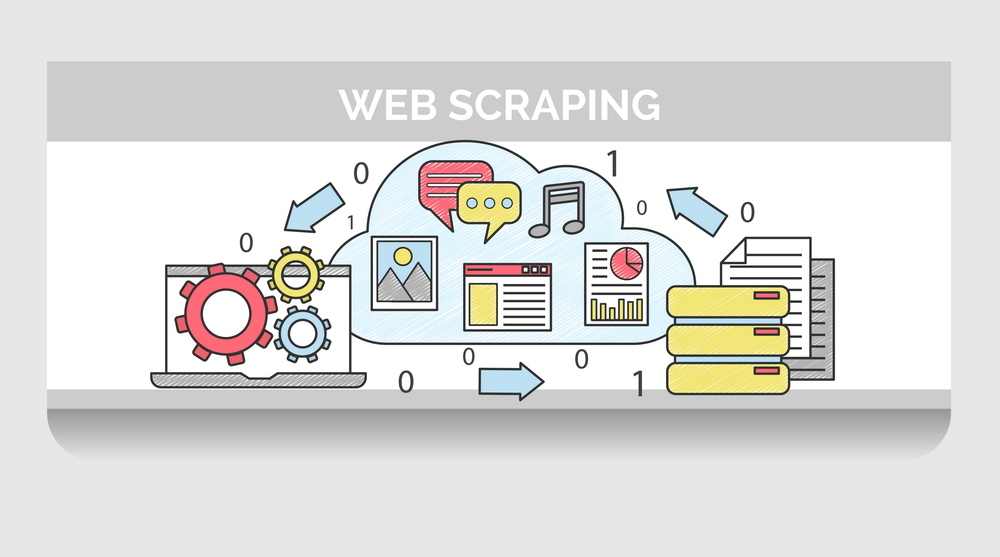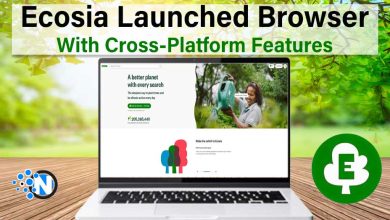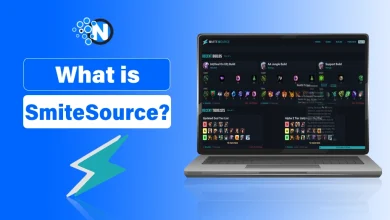How do Proxies and Web Scraping Help with Business Growth?

Ecommerce grew by around 43% in 2020 as the pandemic took hold. This industry is expected to keep growing at a CAGR of 14.7% until 2027. The pandemic changed how millions of people viewed digital retail, and shopping habits have changed permanently.
To stay competitive though requires a greater understanding of SEO, marketing, and data analysis. The latter becomes far more valuable yearly, and data collection is essential to improve business strategy.
The global data extraction market size is predicted to be worth $4.9 billion by 2027. This represents a CAGR of 11.8% between 2020 and 2027. Clearly, data extraction is viewed as an essential part of operating today.
Understanding web scraping and how to perform it could see your business grow. Your competitors are almost certainly extracting data from across the net, so should you join them?
What is web scraping?
The function of web scraping is to extract data from a webpage. It will normally be performed by automated tools as scraping projects can involve millions of web pages.
Data that is extracted from websites will generally be in HTML format and be unstructured so largely useless for effective data analysis. Therefore the data will usually be imported into a database of some kind or a spreadsheet. Large scraping projects involve too much time and data to be done manually, so bots and tools are used. Using cURL with proxy routing is one powerful way to automate scraping data.
It is said that over 40% of online traffic is from bots today, and many of these are scraping data to help companies improve different aspects of their business.

Isn’t web scraping in decline?
The term web scraping has some negative connotations. Google reports that online searches for web scraping have dropped by 30% to 40%. This has led some to assume that the activity is in decline. However, the data extraction market revenue mentioned above proves otherwise.
What is more likely to have happened is that the term web scraping has been replaced with data extraction or data collection. Some web scraping businesses have rebranded themselves accordingly too.
There are also more targeted services available now for data collection so wholescale scraping operations may have been reduced. Nevertheless, web scraping continues as an effective way to collect data.
How does web scraping help with business growth?
Web scraping allows businesses to access precious information. In the past, it would have been virtually impossible to extract the data available now.
Businesses can use web scraping in various ways, and the type of data extracted will determine potential growth. Here are some ways that data scraping is used.
SEO tracking
Today the role of SEO in business growth cannot be underestimated. To compete with rivals and stay relevant, a business needs to appear high in SERPs. Data scraping lets you see how your rival’s web content performs.
You can track what keywords are being used to drive traffic and what content is being published. You can extract accurate data to be used within your own content too. A word of warning though, publishing content from another website is likely to do you more harm than good. Your reputation could be damaged, and you may drop down SERPs.
However, web scraping on your own website can also help with SEO audits. This can reveal metrics data, and where your site is working and where it is failing. It is also useful for finding backlinks that help and ones that harm your rankings.
Ad verification
Around $566 billion is expected to be spent on the US digital advertising industry this year. Advertising campaigns can be costly, and not all of them work. Perhaps through no fault of your own.
Black hat SEO and fraudulent practice abound on the internet. And if you become victim to one of the many advertising scams your business’s growth could be harmed.
For advertising placements, it is not unknown for agencies to use fake websites with false traffic data. Companies have also been known to place their rivals’ ads on sites where it could harm their reputation.
A proxy will let you switch regions and scrape data from websites to check your ad campaign is being run properly.
Price comparison
Consumers no longer need to tramp from shop to shop to look for the best deal. The internet allows for quick price comparisons and purchases. Web scraping means that you can make up-to-the-minute changes to your ecommerce site and stay level with the competition.
You can use web scraping to keep your prices lower or match offers made on similar websites. This lowers the risk of losing conversions and helps to retain customers. If you can increase your customer retention by just 5% you can see profits rise by over 25%.
Social media scraping
Facebook isn’t a fan of this, and they have tried using web scrapers. However, they have been unsuccessful, and they have ironically been fined for data scraping.
Providers such as Proxyempire recommend rotating residential IPs for social media scraping. These IP addresses are nearly impossible to detect and come from genuine ISPs so they won’t get cloaked or blocked.
It is now common to scrape social media data to gather thoughts and opinions from certain demographics. Trends can be spotted, and you can gather consumer opinions on your products this way.
Lead generation
Web scraping can be used to gather data about a rival’s audience through social media for instance. Contact details, names, and email addresses can be gathered quickly and exported.
Collecting contact details is a common use for web scraping, and can help in areas such as email marketing.
Engaging up-to-date content
Although it is not a great idea to publish other sites’ content, you can scrape news stories and RSS feeds to provide interesting posts for your visitors. The bounce rate for websites is said to be between 15 and 45 seconds so content that keeps visitors returning will help with brand growth and conversions.
Do you need a certain type of proxy to scrape data?
If you use a proxy it means that you are routing your data through a device or server to the internet instead of connecting directly. The advantage of doing this is that you will be largely anonymous, and your IP address is hidden.
Home users tend to use VPNs for similar purposes as they are easy to download, and often free. Businesses though will more likely plump for the more reliable option of using a proxy provider.
If you want to collect data to help with your business strategy then you will need to have the right proxy. A web scraping project could fail or become bogged down with issues if you use VPNs or data center proxies for instance.
Why are data center proxies bad for web scraping?
Datacenter proxies have many uses and shouldn’t be dismissed as a viable option for masking your IP. They can be used to switch regions so that you appear to be accessing websites from a location other than your own.
This can be useful when accessing region-restricted content or carrying out market research. But for web scraping, data center proxies may be limited.
They are slower than the alternatives, and the IP addresses used are not authentic. Datacenter proxies generate IPs and they are also not attached to a specific location. These types of proxies are easy to spot, and the IPs become known to websites and get blocked often.
Therefore, residential or mobile proxies are the recommended option for business data scraping.
Are there any dangers involved with web scraping?
Google and Meta are actively trying to stop web scrapers from collecting their data, but this hasn’t stopped either organization from doing the same.
South Korea recently hit Google and Meta with record fines for data collection. Technically you could also be taken to court for web scraping, but the risks are actually likely to be much smaller.
Web scraping can legitimately help a business develop better marketing campaigns, improve its SEO, and be more competitive. But, it has the potential to cause harm to a brand if improperly used.
Content scraping should be done with caution. Publishing content from another website is not good practice and is likely to damage your brand’s reputation. Similarly, scraping beyond publicly accessible data could also see you in hot water. Confidential or sensitive data should be left alone.
How do you protect your data from being scraped?
Understanding how valuable data extraction can be should make you wary about your own information. Data scraping is highly popular in certain industries such as ecommerce and real estate. If you are involved in one of these areas then it is likely that your website has been scraped multiple times.
Web scraping can give you an edge over the competition, but you lose that when your data is mined. This is one reason why the data collection industry is growing. It is a continuous task to keep up to date and analyze competitor data.
There are steps you can take to protect your identity in this digital age, and you can safeguard your data too, to a degree. If you have ever seen a CAPTCHA on a website then you have already seen one safeguard against web scraping.
Other safety measures include:
- Limiting visits from the same IPs (HTTPS request limits)
- Monitoring new accounts with high activity levels
- Employ some form of bot protection
- Monitor high levels of web page views
You may also want to monitor your competitors’ websites to see if they frequently match or undercut your prices. It could be that you are both using web scraping for the same purposes.
Summary
Web scraping can help a brand grow in a number of ways, but it must be done with a reliable proxy. Using VPNs or data center proxies will result in a slow scraping process that will most likely be hindered by blocks and bans.
Data collection is a growing area for helping businesses to make profitable and effective decisions. As online businesses use web scraping more, it will be almost impossible to ignore if you want to grow and outperform your competition.




